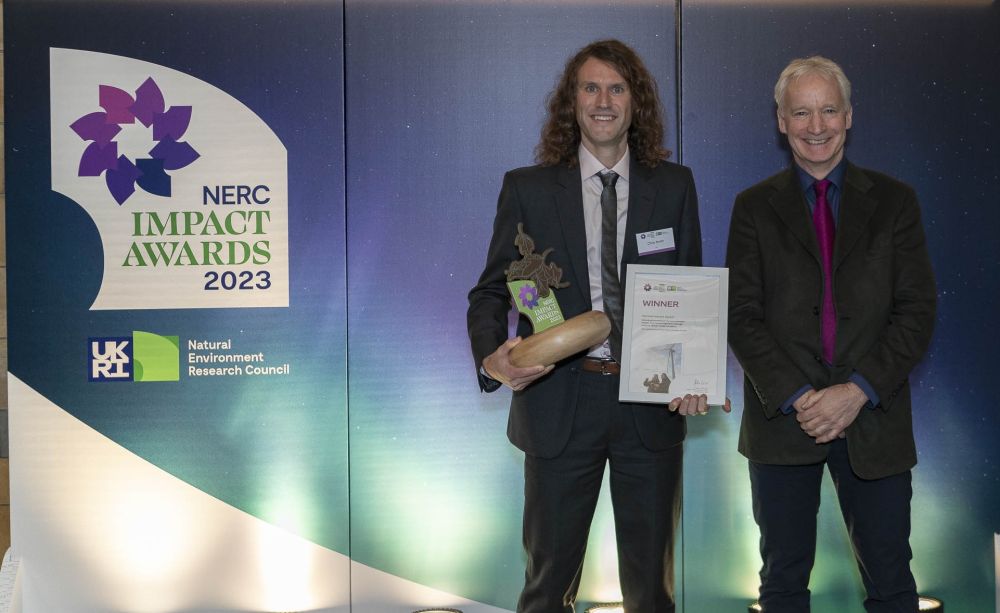
An ultra-fast computer model that is shaping the global outlook on tackling climate change has been recognised for its environmental science impact.
The Finite-Amplitude Impulse Response (FaIR) Model, developed by University of Leeds and University of Oxford academics, has transformed our understanding of the connection between global temperatures and the emissions we release into the atmosphere.
The research has helped countries including the UK, France and New Zealand to enshrine net zero emissions targets into law.
The pioneering work has now won a Natural Environment Research Council (NERC) Impact Award, which recognises UK science at the heart of the responsible management of our planet. The Leeds team won in the Societal Impact category.
Having an impact is why we get out of bed in the morning.”
FaIR was developed by Professor Piers Forster, Director of the Priestley Centre for Climate Futures, and Dr Chris Smith, from the School of Earth and Environment.

Professor Piers Forster
The remaining global carbon budget is a valuable concept that could be used to track progress against the Paris Agreement target of limiting global warming to 1.5°C.
However, climate models employed to calculate this budget are often energy intensive and can take months to produce a result.
The FaIR model produces similarly accurate results, but in just a fraction of a second, enabling decision makers to explore multiple emissions scenarios at once.
It was used in the latest report of the Intergovernmental Panel on Climate Change to produce temperature outcomes for different emission scenarios, contributing to the internationally-recognised overview of the latest and most important science on climate change.
Professor Piers Forster, Director of the Priestley Centre for Climate Futures, said: "Adoption of net zero greenhouse targets around the world can be traced to some simple calculations we and colleagues at Oxford University did for the report, using the FaIR model.
“This model itself is now an IPCC benchmark and used worldwide to rapidly assess policy choices and levels of future warming.
“Having an impact is why we get out of bed in the morning. We can still make our science much more effective and I would like to see awards such as these grow in recognition and importance."

Dr Chris Smith with Dr Doug Gurr, Director of the Natural History Museum and a member of the judging panel, at the NERC Impact Awards
Professor Peter Liss, Interim Executive Chair of NERC, said: “The research of our winners, finalists and all this year’s entries are tackling some of the planet’s most pressing issues. The inspiring impacts demonstrate the huge benefits that environmental science brings to our society, economy and environment.”
Further information
The NERC Awards were held at a ceremony at the National History Museum on 29 November 2023.
The winners of each category in the NERC 2023 Impact Awards will receive £12,000 and the runners-up £7,000 to further the impacts of their NERC-funded research.
The finalist judged to have had the most significant impact will be the Impact Awards overall winner and will receive £20,000.
For further information contact Becky Pascoe in the University of Leeds press office.